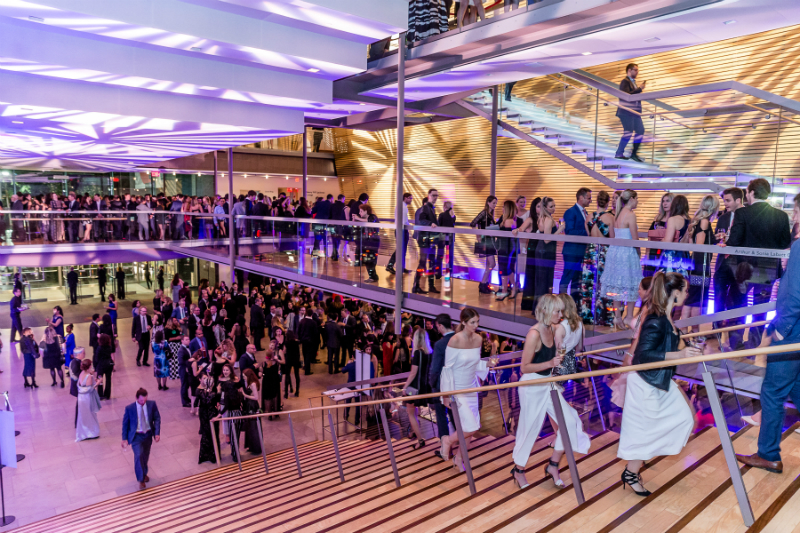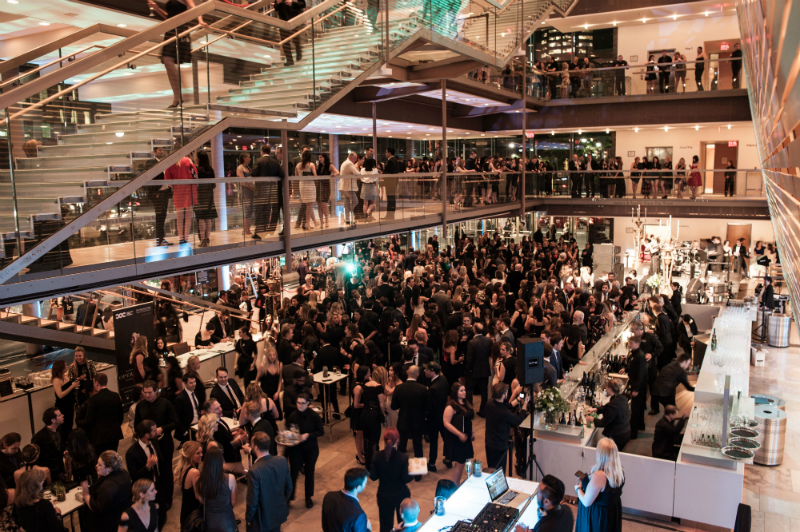The Canadian Opera Company’s General Director Alexander Neef on life, the role of art in society, and why opera appeals to all
As told to Mackenzie Belcastro
AN INTRODUCTION TO OPERA
I grew up in Germany in the 70’s and 80’s. It was a time when music couldn’t be ignored, especially if you were a student. It was integral part of the school curriculum; we’d spend no less than two hours a week studying music for 13 years. It was part of everyone’s upbringing.
My grandfather owned this cassette of Mozart’s operas. I listened to it religiously, each Saturday morning, when went to visit my grandparents.
As a teen, I began going to operas with my friends. The first performance I saw was Beethoven’s Fidelio at the Staatstheater Stuttgart, and I was captivated. Somehow, I knew that opera would always be for me. But I never predicted that I’d actually be working in the field.
So when I began university, I studied Latin philology and modern history—I wanted to become a school teacher. I was introduced to Gérard Mortier, the late opera director and artistic director of the Salzburg Festival. Friends of mine, didn’t think becoming a teacher was the right direction for me. They gave me a nudge by introducing me to people working in the business, and Mortier was one of them.
FALLING INTO CAREER IN OPERA
When school finished, Mortier, who had become my mentor, offered me a job as artistic administrator. My resumé had nothing on it to indicate any ability to work with him, but that didn’t matter; he saw my potential. It was clear that the gig he gave me, could be taken away: “I think you can do this,” he said, “but if I’m going to give you the opportunity to swim, you have to swim—it’s either swim or die.”
He was demanding, but inspiring too. He took his young proteges everywhere: If Mortier was meeting with important artists, he’d say, “Tag along, I’m going to introduce you.” He encouraged us to develop our own relationships. Looking back, that was probably the most important thing that he did for me as a young person working in opera.
In the 10 years I worked for Mortier, I spent a good deal of time as an artistic administrator, which meant I had my hands in a bit of everything—theatre, dance, opera and music. In 2004, I became the casting director for the Opéra National de Paris and my focus became opera exclusively.


OPERA IS TIMELESS
The thing that attracts me to opera the most, is its ability to address the timeless issues of humankind. Developing an opera takes so long, that you can’t tell a story of a specific time, because it’ll be irrelevant by the time the opera’s ready to be performed. You need to look at the big themes of the human condition and bring them alive by re-creating them through a contemporary lens.
This year, at the Canadian Opera Company, we’re debuting Hadrian, a story about an older gay man in a dead-end marriage who has a passionate love affair with a younger man. It’s two-thousand years old and yet still resonates, because the questions it raises about love, homosexuality, marriage, and identity have not gone away.
The opera is a place for the audience to form an opinion and draw their own conclusions. No opera is put on to throw ideas onto its audiences laps, nor is there one way to interpret an opera. Theatre was invented in Ancient Greece about two-and-a-half-thousand years ago for this purpose: to bring people together to look at art that deals with societal issues. When the Athenians invented theatre, they knew very well that subjects, which are notoriously hard for society to deal with, become, when put in the realm of art, possible to address.
OPERANATION: BRIDGING THE GAP BETWEEN MILLENNIALS AND OPERA
Fourteen years ago we designed Operanation with the intent to build a bridge for the younger crowd, not only to the art form, but to its home in Toronto: the Canadian Opera Company. It’s a party that’s about sharing the story of the COC. We invite the younger set to experience what we have to offer for themselves, so they can build their own opinions thereafter.
Once we get people in the doors, they tend to come back. Operanation is also an opportunity to address the high price point and barrier to entry, which is another misconception about opera. We have $12.00 tickets—that’s cheaper than movie tickets. We also have programs for those under 30, where tickets are reduced to twenty two dollars or less if bought in a bundle. We’ve done this to ensure there’s no financial burden associated with dipping your toes into opera, particularly for the young audiences that are so integral to this art form and its future. We need youth to be involved to refresh our perspective.
As for the question of whether opera will survive, I believe it will. After all, it’s been around for 400 years, why should it disappear now?










